MercoPress. South Atlantic News Agency
Tag: China
-
Tuesday, July 3rd 2018 - 09:01 UTC
UN peacekeeping budget is US$ 600 million less than last year's

United Nations member countries on Sunday agreed to a peacekeeping budget of just under US$ 6.7 billion, according to diplomatic sources. This is about US$ 122 million less than what had been recommended by a panel of experts.
-
Friday, June 29th 2018 - 09:13 UTC
Beijing eases limits on foreign investment in banks, car industry and agriculture
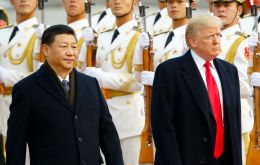
The Chinese government has eased rules that limit foreign investment in the country's banks, car industry and agriculture. The barriers have drawn criticism from trading partners, including the US. The Trump administration cited the rules as an example of unfair practices when it announced plans for tariffs on Chinese goods earlier this year.
-
Thursday, June 28th 2018 - 12:45 UTC
Good news for British farmers: China lifts ban on beef from the UK
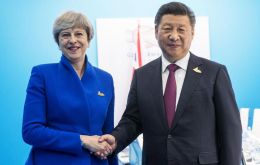
China has ended a two-decades-long ban on exports of beef from the UK, first introduced after the outbreak of BSE - or “mad cow disease” - in the 1990s. The government said the development will be worth £250m to British producers over the next five years.
-
Tuesday, June 26th 2018 - 08:16 UTC
Brazilian soybeans expected to benefit from US-China trade war
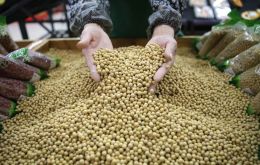
The country that could indirectly benefit from the intensifying US-China trade war is Brazil, which finds itself in a strategic position to increase its market share of soybean exports to China.
-
Friday, June 22nd 2018 - 08:57 UTC
US/China trade dispute: Beijing says US suffers of a “symptom of paranoid delusions”
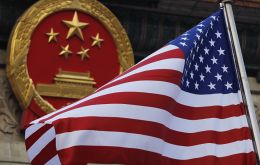
U.S. protectionism is self-defeating and a “symptom of paranoid delusions” that must not distract China from its path to modernization, Chinese state media said on Friday. China has stepped up its war of words with the United States since President Donald Trump threatened on Monday to hit US$ 200 billion of Chinese imports with 10% tariffs if China retaliates against his previous targeting of US$ 50 billion in imports.
-
Wednesday, June 20th 2018 - 09:12 UTC
Kim in China underlines “friendship, unity and cooperation” with Beijing
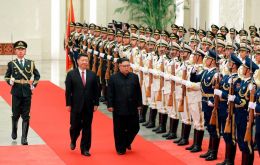
Kim Jong Un declared North Korea's unstinting “friendship, unity and cooperation” with Beijing during his third visit to China this year, in a show of loyalty to his main ally following a landmark summit with US President Donald Trump.
-
Wednesday, June 20th 2018 - 08:50 UTC
Cuba actively promotes foreign investment to prop the economy
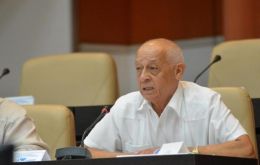
The Cuban government opened on Monday the 3rd Edition of International Convention and Exhibition of Cuban Industry (CubaIndustria 2018), seeking to attract foreign investors to revitalize the country's economy.
-
Monday, June 18th 2018 - 08:34 UTC
China knows better as Trump tariff strategy trsicks US voters
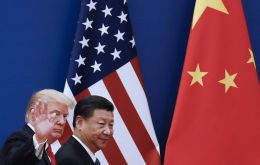
Global Times Editorial
The Trump administration announced tariffs on Chinese high-tech and industrial imports worth of US$50 billion. The first round, on imports totaling US$34 billion, will begin July 6, while the second round is still under review. -
Monday, June 18th 2018 - 08:30 UTC
China forced to fight back with reciprocal tariffs
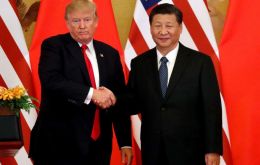
The following editorial on the current US/China trade war was published by the official news agency Xinhua,
-
Friday, June 15th 2018 - 10:55 UTC
Markets waiting for Trump's announcement on US$ 50bn tariffs against China

Asian shares wobbled on Friday as investors braced for U.S. tariffs against China, while the Euro flirted with two-week lows after a cautious European Central Bank indicated it would not raise interest rates for some time. U.S. President Donald Trump has made up his mind to impose “pretty significant” tariffs and will unveil a list targeting US$ 50 billion of Chinese goods on Friday, an administration official said. Beijing has warned that it was ready to respond.
